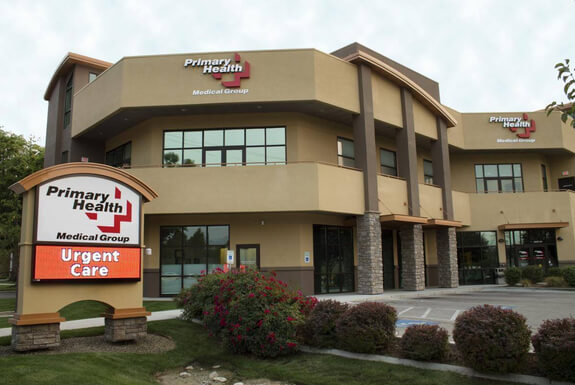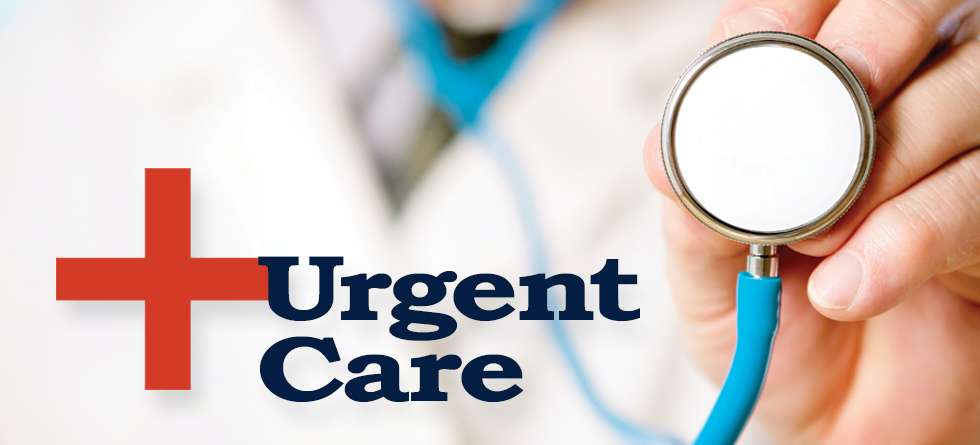Expert Recommendations on Navigating Clinic Options for Urgent Care
Expert Recommendations on Navigating Clinic Options for Urgent Care
Blog Article
The Relevance of Urgent Treatment Centers in Connecting the Void Between Health Care and Emergency Situation Providers
Immediate care facilities have actually become an essential part of the medical care landscape, effectively addressing the essential requirement for instant clinical attention without turning to emergency services. By providing take care of non-life-threatening conditions, these centers assist to alleviate the concern on emergency clinic and enhance patient access to prompt treatment. Their extended hours and diverse solutions accommodate an expanding populace looking for choices to typical health care. The evolving duty of immediate care centers increases crucial inquiries regarding their assimilation within the wider healthcare system and the ramifications for patient results and source allotment.
Overview of Urgent Treatment Centers
Immediate care centers have actually come to be an essential component of the healthcare delivery system, providing accessible clinical services for non-life-threatening problems. These facilities typically run outdoors conventional workplace hours, offering people an option to emergency clinic and health care settings. Clients looking for immediate treatment frequently existing with problems such as small injuries, infections, or diseases that call for prompt focus but do not posture an instant risk to life or limb.
Urgent treatment facilities are staffed by a range of health care professionals, consisting of medical professionals, registered nurse experts, and medical professional assistants, who are geared up to diagnose and deal with different clinical problems. They commonly feature diagnostic tools such as X-ray equipments and research laboratory services, enabling them to give extensive care on-site.
The facility of immediate care centers has actually been influenced by the enhancing need for prompt medical services in a busy society, where clients may struggle to protect appointments with medical care providers. Consequently, these centers aim to relieve blockage in emergency situation divisions, improving general health care effectiveness. In addition, urgent treatment facilities commonly act as a bridge between main care and emergency situation solutions, making sure that patients receive suitable care tailored to their particular clinical requirements.

Advantages of Urgent Treatment Services
Accessing timely healthcare is a considerable benefit of immediate care services. These facilities give instant focus for non-life-threatening problems, successfully lowering delay times contrasted to traditional emergency departments. People looking for treatment for small injuries, diseases, or urgent health and wellness worries can get treatment without the long delays usually connected with healthcare facility brows through.
Another key benefit is the prolonged hours of operation. Many urgent treatment centers are open evenings and weekends, fitting people that might not have the ability to visit their health care provider during conventional office hours. This adaptability makes urgent care an obtainable choice for those with hectic routines or unexpected wellness problems.
Additionally, urgent treatment centers usually supply a wide variety of services, including analysis screening, X-rays, and fundamental laboratory solutions. This thorough technique enables fast diagnosis and therapy, boosting person satisfaction.
In addition, immediate treatment centers are commonly much more economical than emergency clinic, making them an appealing option for people without insurance coverage or those with high-deductible plans. Overall, urgent treatment solutions play an essential role in offering easily accessible, timely, and budget-friendly healthcare.
Comparison With Medical Care
Usually, patients often evaluate their alternatives between urgent care facilities and medical care service providers when looking for medical interest. Both serve vital roles in the health care system, yet they vary substantially in cost, range, and ease of access.
Health care companies are generally the initial point of call for clients, concentrating on lasting wellness management, preventive care, and chronic condition management. They provide continuity of care, fostering a patient-provider partnership that permits thorough health and wellness assessments and personalized treatment plans. However, arranging a visit can be lengthy, usually requiring days or weeks in breakthrough.
In contrast, urgent care centers provide prompt look after non-life-threatening conditions that need punctual focus, such as small injuries or infections. These facilities frequently operate beyond standard office hours, fitting individuals who may not have the ability to visit their health care service provider during normal organization times. In addition, urgent care is typically more affordable than emergency clinic sees, making it an enticing choice for those with limited healthcare gain access to.
Eventually, while urgent treatment centers and medical care carriers both contribute to patient health and wellness, they cater to unique needs, making it critical for patients to identify which choice best straightens click for more info with their circumstances.
Emergency Solutions Interaction
The communication between immediate treatment centers and emergency services is a vital facet of the health care landscape, especially when clients encounter circumstances that might rise in extent. Urgent treatment centers act as a bridge between health care and emergency departments, addressing non-life-threatening problems that call for prompt focus. This partnership enhances client outcomes and enhances source allowance within the medical care system.
When individuals present with not dangerous but immediate concerns, immediate care facilities can efficiently manage their needs, alleviating blockage in emergency situation areas. Facilities furnished with diagnostic abilities can assist in prompt recommendations to emergency situation services when a client's problem exceeds the scope of urgent care treatment. This smooth communication aids make certain that people get the appropriate degree of treatment without unnecessary hold-ups.
Moreover, reliable interaction in between immediate care companies and emergency solutions is crucial. Sharing patient details and therapy histories fosters coordinated treatment, minimizing the threat of repetitive examinations and treatments. As healthcare continues to evolve, the vibrant partnership between urgent treatment centers and emergency situation solutions will certainly play an essential duty in boosting individual care performance, complete satisfaction, and overall health end results within the community.
Future of Urgent Treatment Facilities
As health care needs progress, the future of urgent treatment centers is poised to end up being progressively indispensable to the general clinical environment (Urgent Care). These centers are likely to expand their duties by integrating advanced innovations, such as telemedicine, expert system, and digital wellness record combination. This will certainly improve person gain access to and enhance treatment sychronisation between immediate care, medical care, and emergency solutions
Additionally, immediate treatment centers are anticipated to diversify their service offerings to include precautionary care and chronic illness monitoring. This change will position them as crucial components in managing population wellness, lowering the burden on emergency situation divisions, and addressing gaps in health care schedule.
The expanding pattern Homepage of value-based care will additionally speed up the makeover of immediate treatment centers, triggering them to concentrate on patient end results and satisfaction. Facilities may additionally adopt collaborative practice versions, functioning very closely with professionals and key care suppliers to ensure comprehensive patient monitoring.
Final Thought
Finally, urgent treatment facilities offer an important function in the healthcare system by supplying instant accessibility to treatment for non-life-threatening problems, effectively minimizing stress on emergency situation services. Their prolonged hours and varied variety of services enhance patient comfort and complete satisfaction, while also guaranteeing appropriate care distribution. As healthcare needs remain to develop, the duty of urgent care facilities will likely end up being significantly considerable, further linking the gap between key treatment and emergency solutions.
The facility of urgent care centers has been affected by the raising need for prompt clinical services in a hectic society, where individuals may struggle to secure visits with primary treatment providers. Additionally, urgent care facilities typically offer as a bridge in between main treatment and emergency solutions, ensuring that clients obtain appropriate treatment tailored to their certain clinical demands.
Numerous urgent care facilities are open evenings and weekends, fitting individuals that might not be able to see their main treatment service provider during typical office hours (Urgent Care). As healthcare continues to evolve, the vibrant connection between urgent care centers and emergency solutions will certainly play a pivotal duty in boosting patient treatment performance, complete satisfaction, and overall health outcomes within the community

Report this page